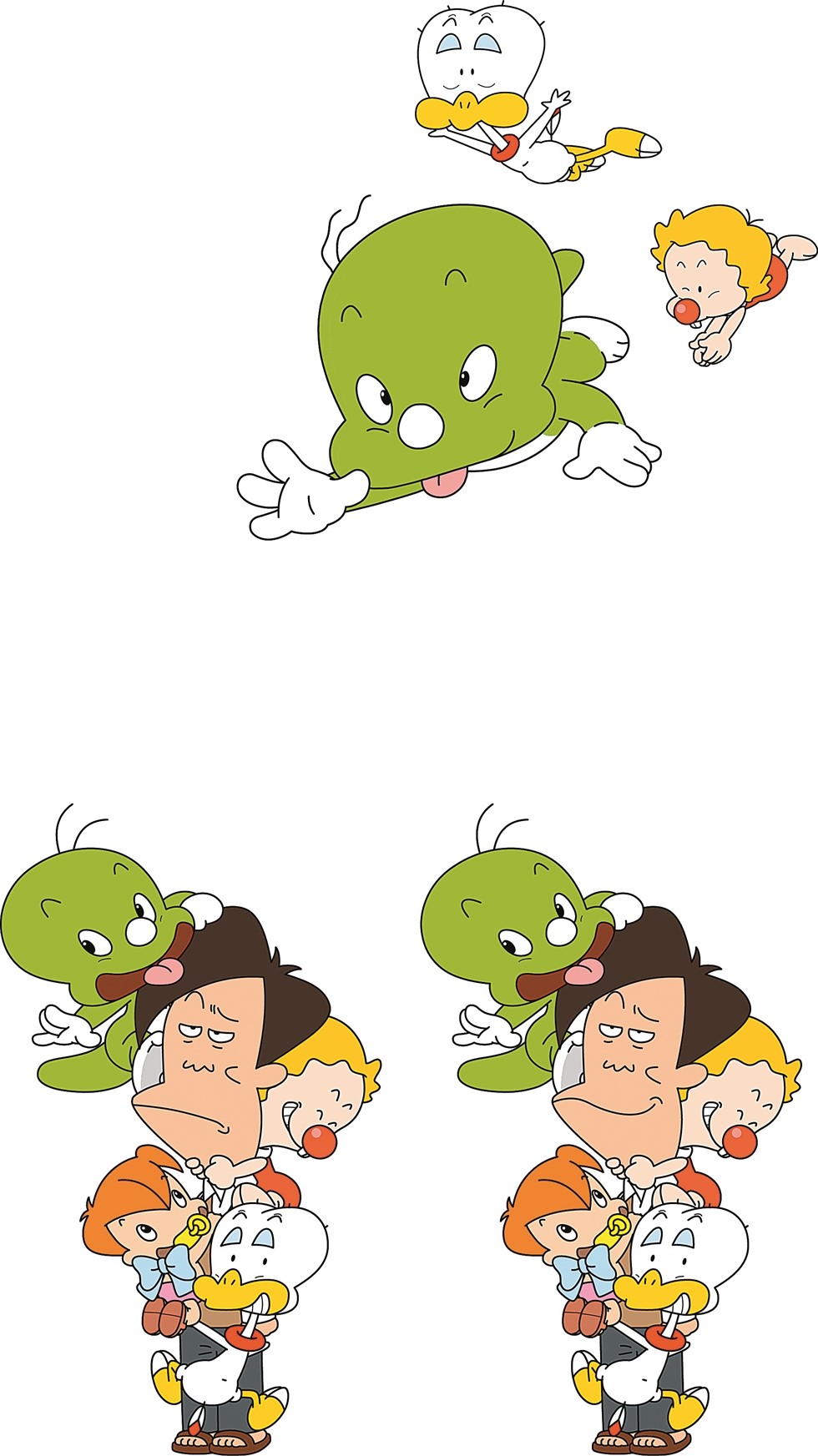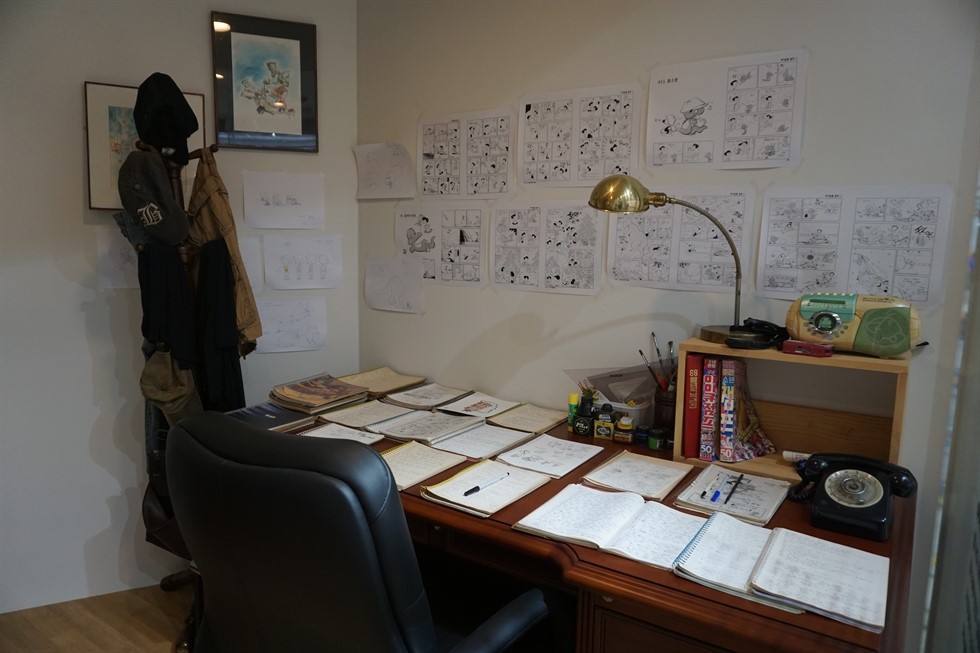[Sep] Dooly celebrates 40 years as webtoons explode
Date Sep 26, 2023
 A young visitor explores the Dooly Museum in northern Seoul, September 10, 2023. (Photo by S Latham)
A young visitor explores the Dooly Museum in northern Seoul, September 10, 2023. (Photo by S Latham)
This year, Korea celebrates the 40th anniversary of its beloved dinosaur Dooly, who stands as a trailblazer in the nation's rapidly expanding and diverse comic book and webtoon industry. Dooly – a comic book character which later branched out into various fields, including an animated film, musicals and merchandising – became a standard for the successful adaptation of Korean webtoons as with “Mask Girl,” the 2023 Netflix sensation.
The public met the character when Kim Soo-jung’s comic series “Dooly the Little Dinosaur” debuted in the April 1983 edition of the comic book anthology Bomulseom (Treasure Island). Out of the original series, which ran for a decade, Dooly and the cast of characters surrounding him became national stars, jumping from the pages of comic books into televisions and theaters and onto a host of products for sale.
 Characters including the green dinosaur Dooly are featured here. (Photo by Doolynara)
Characters including the green dinosaur Dooly are featured here. (Photo by Doolynara)
A trailblazer when it was released, Dooly has paved the way for Korean cartoonists and content creators in the rapidly shifting decades since. In 1987, KBS began airing an animated cartoon series out of the original comic book. Nine years later the film adaptation, “Little Dinosaur Dooly: The Adventure of Ice Planet,” arrived in theaters in 1996. In celebration of the 40th anniversary of the original comic book, a remastered version of the film was re-released in theaters earlier this year.
 Poster for the remastered version of the Dooly film released in May 2023. (Photo by Doolynara)
Poster for the remastered version of the Dooly film released in May 2023. (Photo by Doolynara)
The continued popularity of webtoons illustrates the broader success of Korea’s efforts to export its culture in recent times. Loads of new dramas and films in theaters and on popular international streaming services such as Disney Plus and Netflix have their origins in the Korean hallyu market. Much of that creative momentum is powered by Korea’s thriving webtoon industry.
In August, Netflix premiered “Mask Girl,” a series adapted from the Naver webtoon of the same name about an insecure office worker who becomes a masked internet personality by night and subsequently encounters a sequence of horrific and tragic events. An adaptation of the webtoon “Moving” (2015) was also released in August domestically and in the United States to popular reception. The drama’s success has in turn radically increased the original webtoon’s audience.
“Itaewon Class” (2020) remains a shining example of webtoon adaptations and demonstrates the potential of the medium to open spaces for the convergence of media forms as seen on the series’ successful soundtrack.
That same potential is well laid out at the Dooly Museum in Ssangmun-dong, Seoul, where adults who grew up on the cartoon now walk their children through the interactive exhibits with childlike excitement. The museum offers a vibrant escape into the world of Dooly, the imagination of its creator and a national legacy that has shifted with audiences and technology over nearly three decades. It traces the story of the cartoon, from sketches to comic books, to animation, its popular musical partnerships and film.
In the 1990s comic culture went online with webcomics. With the proliferation of the internet in the 2000s and targeted support from organizations like the Korea Creative Content Agency, webtoons emerged as a distinctive Korean form. In the last two decades, the webtoon industry has flourished in the domestic market and become a major source of cultural export and soft power for the nation.
Traveling on public transport through Seoul, one will often see commuters scrolling through continuous unabridged panels of comics on their smartphones. These webtoons are a form of what Koreans dub manhwa – a general term for comics and cartoons akin to the Japanese term manga.
The juxtaposed themes of Dooly and the likes of “Mask Girl” illustrate the scope and cross-generational appeal of webtoons. This suggests that the power and allure of webtoons as entertainment and cultural engagement will continue to captivate audiences, both in Korea and across the globe, for years to come.
 Dooly creator Kim Soo-jung’s work desk on display at the Dooly Museum in northern Seoul, September. 10, 2023 (Photo by S Latham)
Dooly creator Kim Soo-jung’s work desk on display at the Dooly Museum in northern Seoul, September. 10, 2023 (Photo by S Latham)

The Ministry of Culture, Sports and Tourism's "Korea Here & Now" work can be used under the condition of "Public Nuri Type 1 (Source Indication)."




